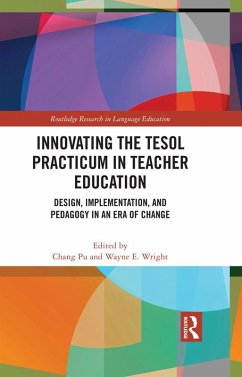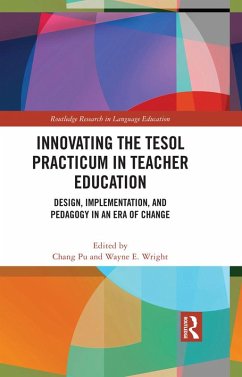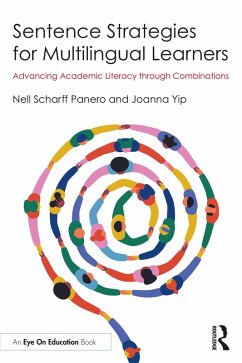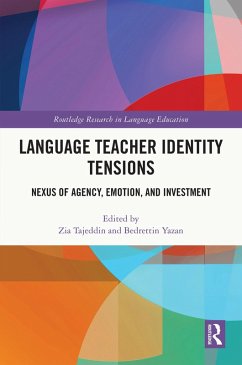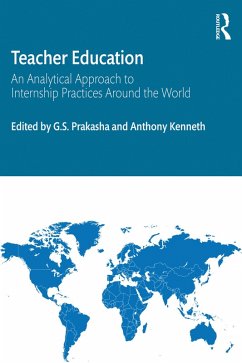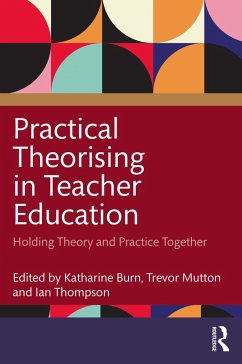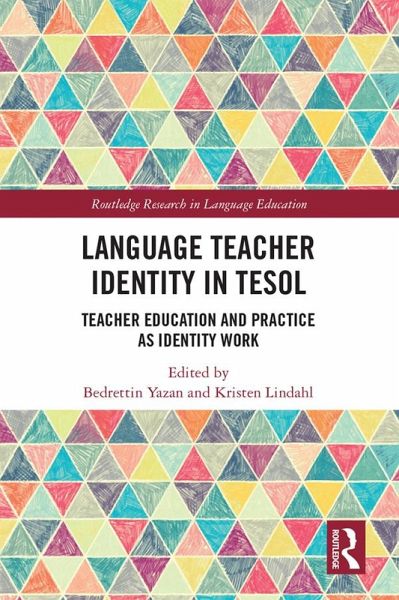
Language Teacher Identity in TESOL (eBook, PDF)
Teacher Education and Practice as Identity Work
Redaktion: Yazan, Bedrettin; Lindahl, Kristen
Versandkostenfrei!
Sofort per Download lieferbar
39,95 €
inkl. MwSt.
Weitere Ausgaben:

PAYBACK Punkte
20 °P sammeln!
This volume draws on empirical evidence to explore the interplay between language teacher identity (LTI) and professional learning and instruction in the field of TESOL. In doing so, it makes a unique contribution to the field of language teacher education.By reconceptualizing teacher education, teaching, and ongoing teacher learning as a continuous, context-bound process of identity work, Language Teacher Identity in TESOL discusses how teacher identity serves as a framework for classroom practice, professional, and personal growth. Divided into five sections, the text explores key themes inc...
This volume draws on empirical evidence to explore the interplay between language teacher identity (LTI) and professional learning and instruction in the field of TESOL. In doing so, it makes a unique contribution to the field of language teacher education.
By reconceptualizing teacher education, teaching, and ongoing teacher learning as a continuous, context-bound process of identity work, Language Teacher Identity in TESOL discusses how teacher identity serves as a framework for classroom practice, professional, and personal growth. Divided into five sections, the text explores key themes including narratives and writing; multimodal spaces; race, ethnicity, and language; teacher emotions; and teacher educator-researcher practices. The 15 chapters offer insight into the experiences of preservice teachers, in-service teachers, and teacher educators in global TESOL contexts including Canada, Japan, Korea, Norway, Sri Lanka, Turkey, the United Kingdom, and the United States.
This text will be an ideal resource for researchers, academics, and scholars interested in furthering their knowledge of concepts grounding LTI, as well as teachers and teacher educators seeking to implement identity-oriented approaches in their own pedagogical practices.
By reconceptualizing teacher education, teaching, and ongoing teacher learning as a continuous, context-bound process of identity work, Language Teacher Identity in TESOL discusses how teacher identity serves as a framework for classroom practice, professional, and personal growth. Divided into five sections, the text explores key themes including narratives and writing; multimodal spaces; race, ethnicity, and language; teacher emotions; and teacher educator-researcher practices. The 15 chapters offer insight into the experiences of preservice teachers, in-service teachers, and teacher educators in global TESOL contexts including Canada, Japan, Korea, Norway, Sri Lanka, Turkey, the United Kingdom, and the United States.
This text will be an ideal resource for researchers, academics, and scholars interested in furthering their knowledge of concepts grounding LTI, as well as teachers and teacher educators seeking to implement identity-oriented approaches in their own pedagogical practices.
Dieser Download kann aus rechtlichen Gründen nur mit Rechnungsadresse in A, B, BG, CY, CZ, D, DK, EW, E, FIN, F, GR, HR, H, IRL, I, LT, L, LR, M, NL, PL, P, R, S, SLO, SK ausgeliefert werden.




